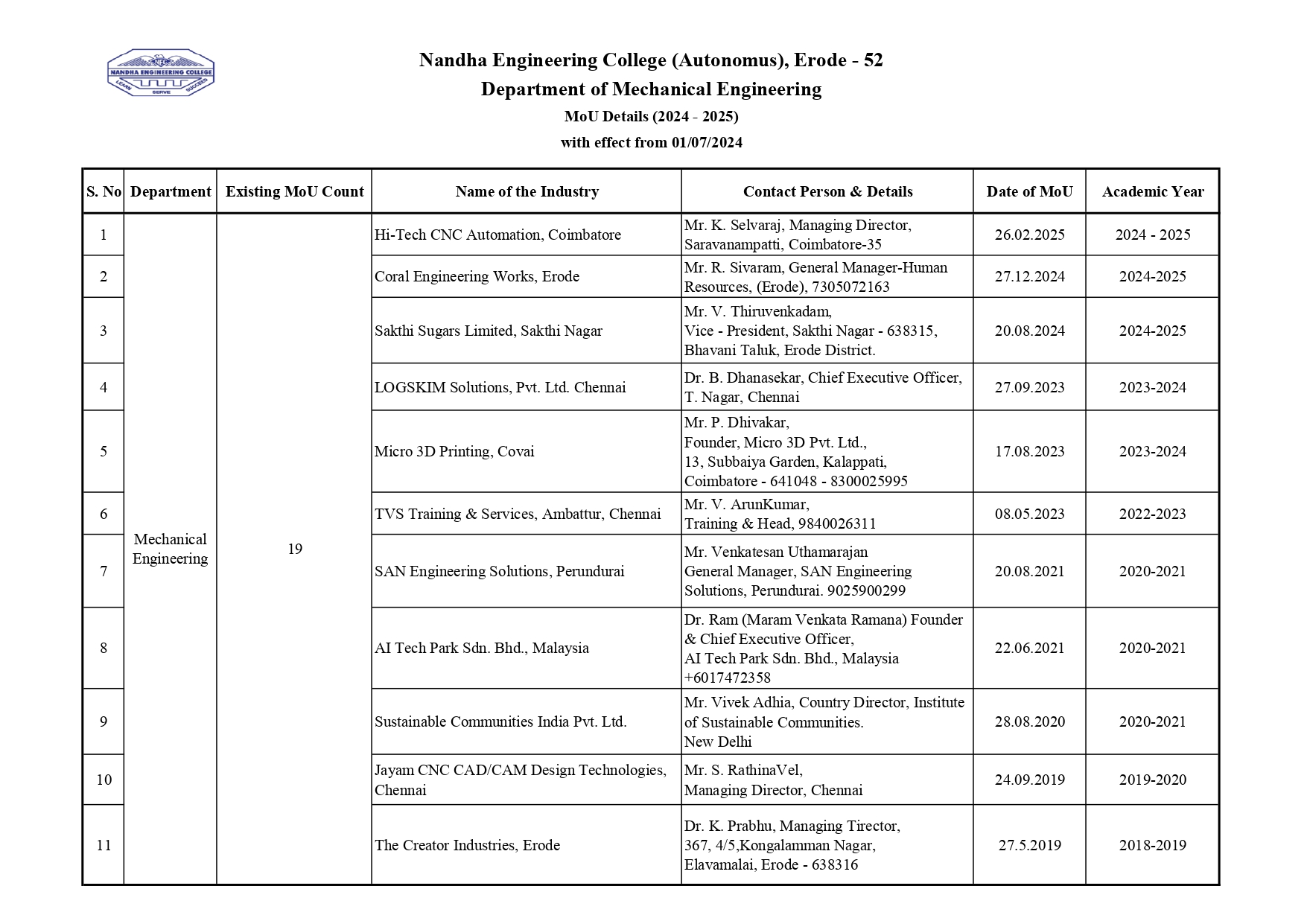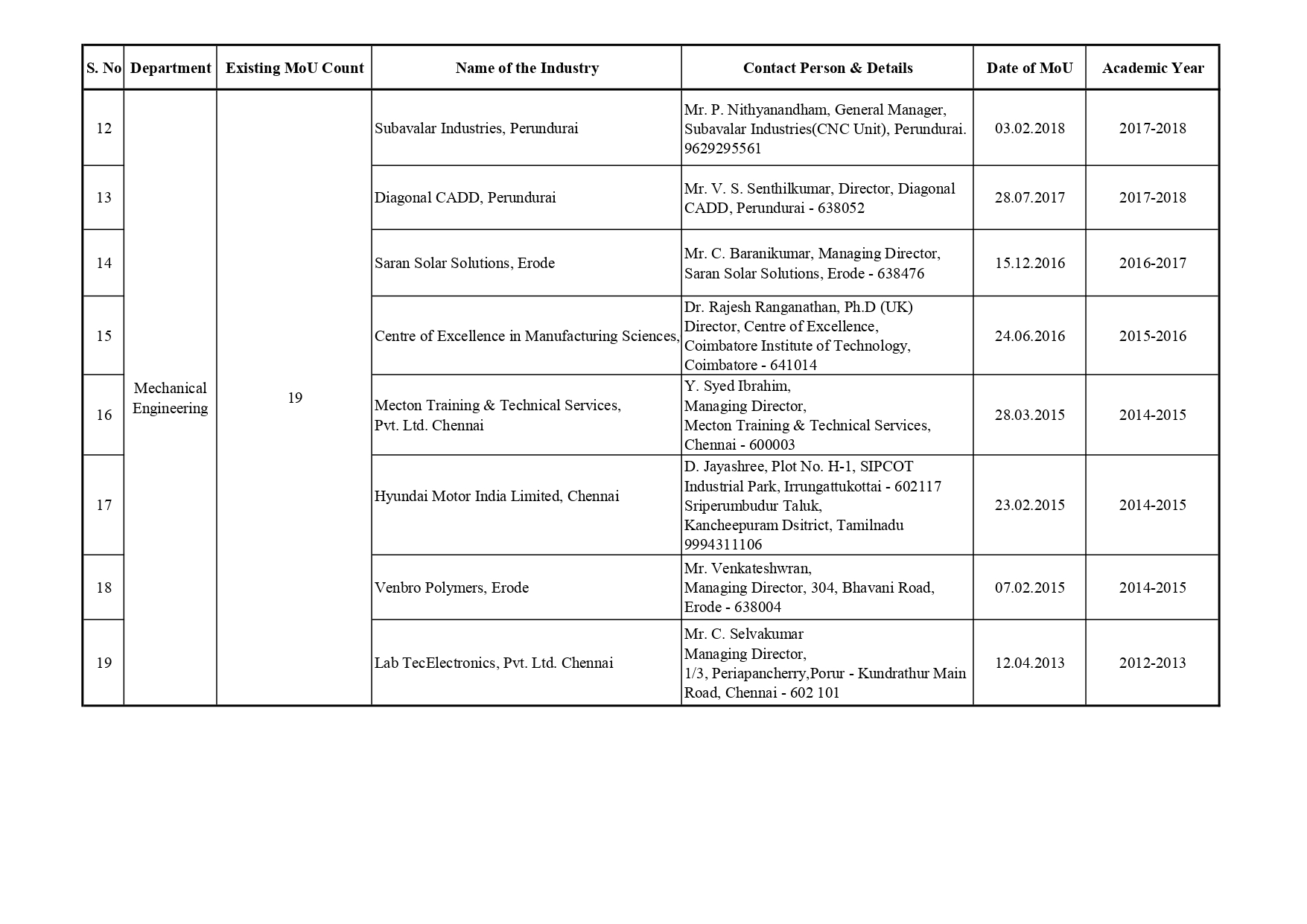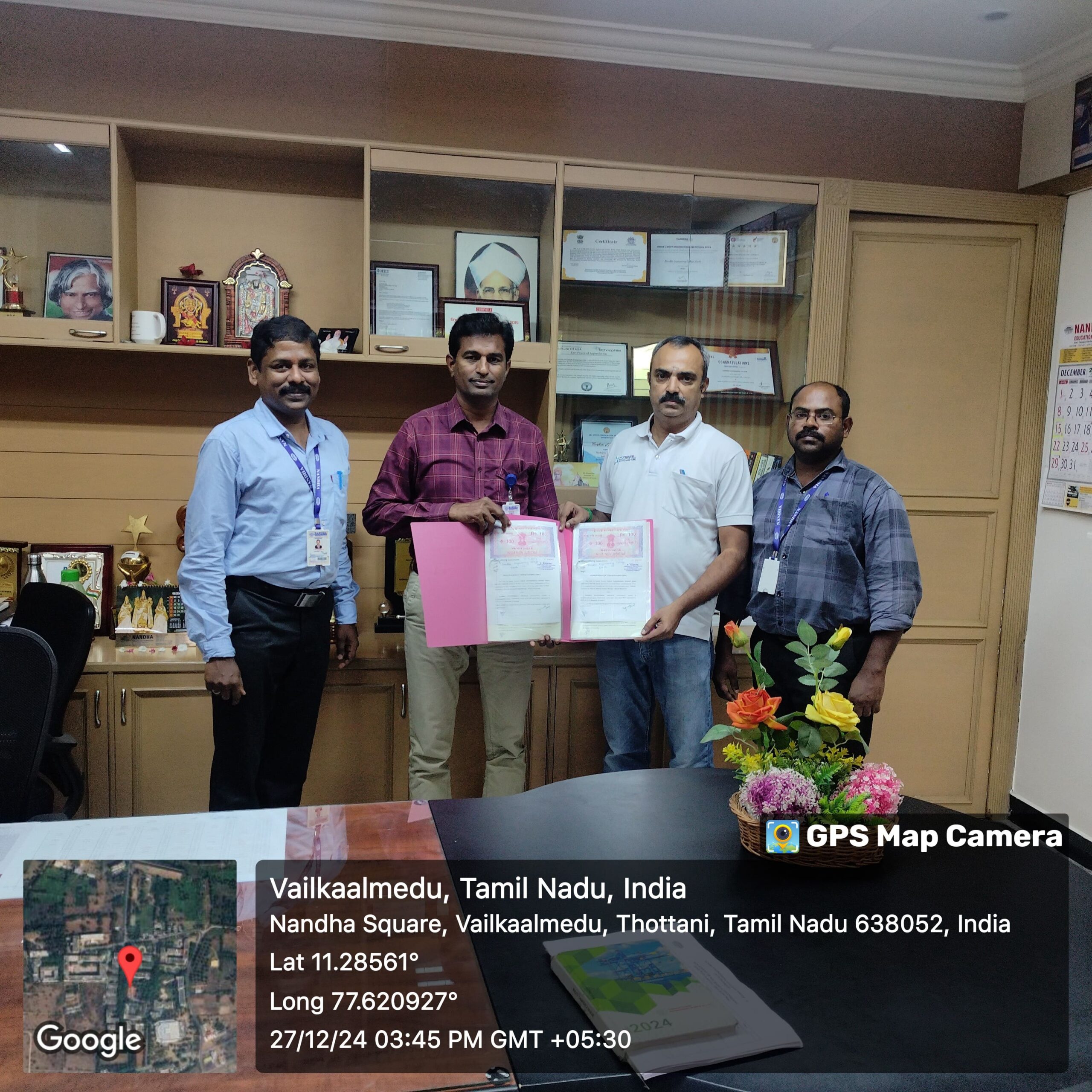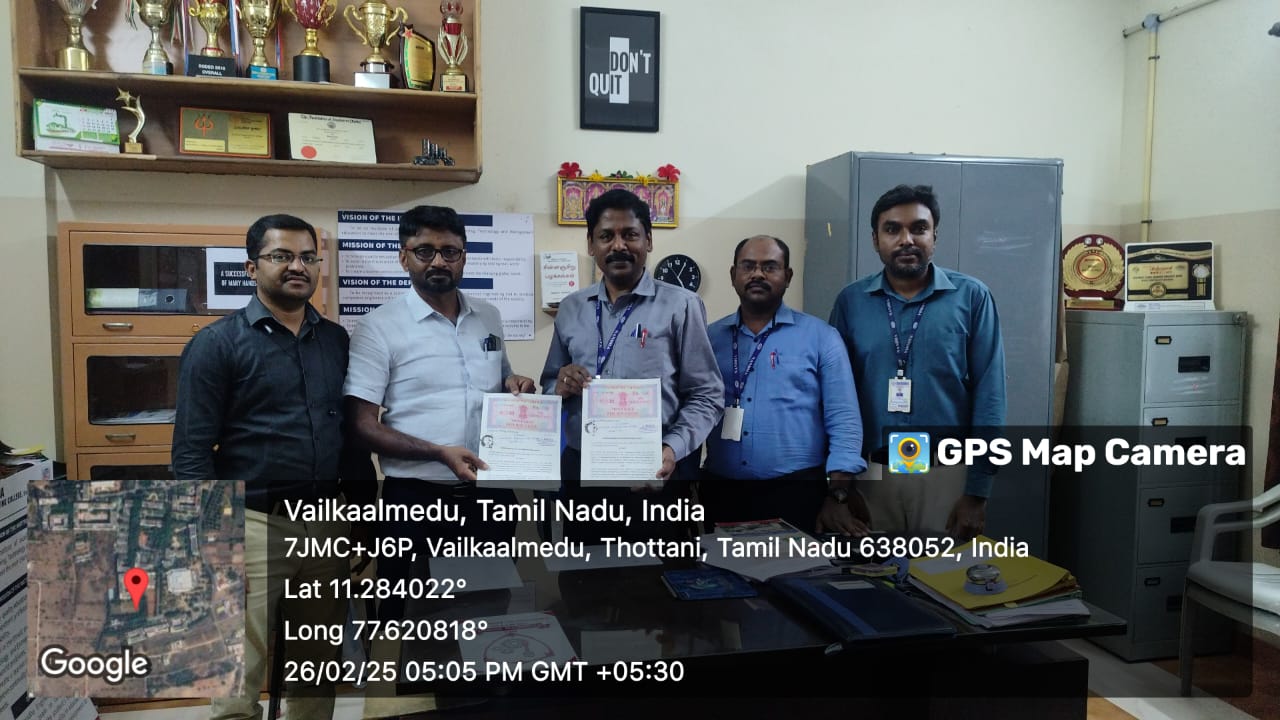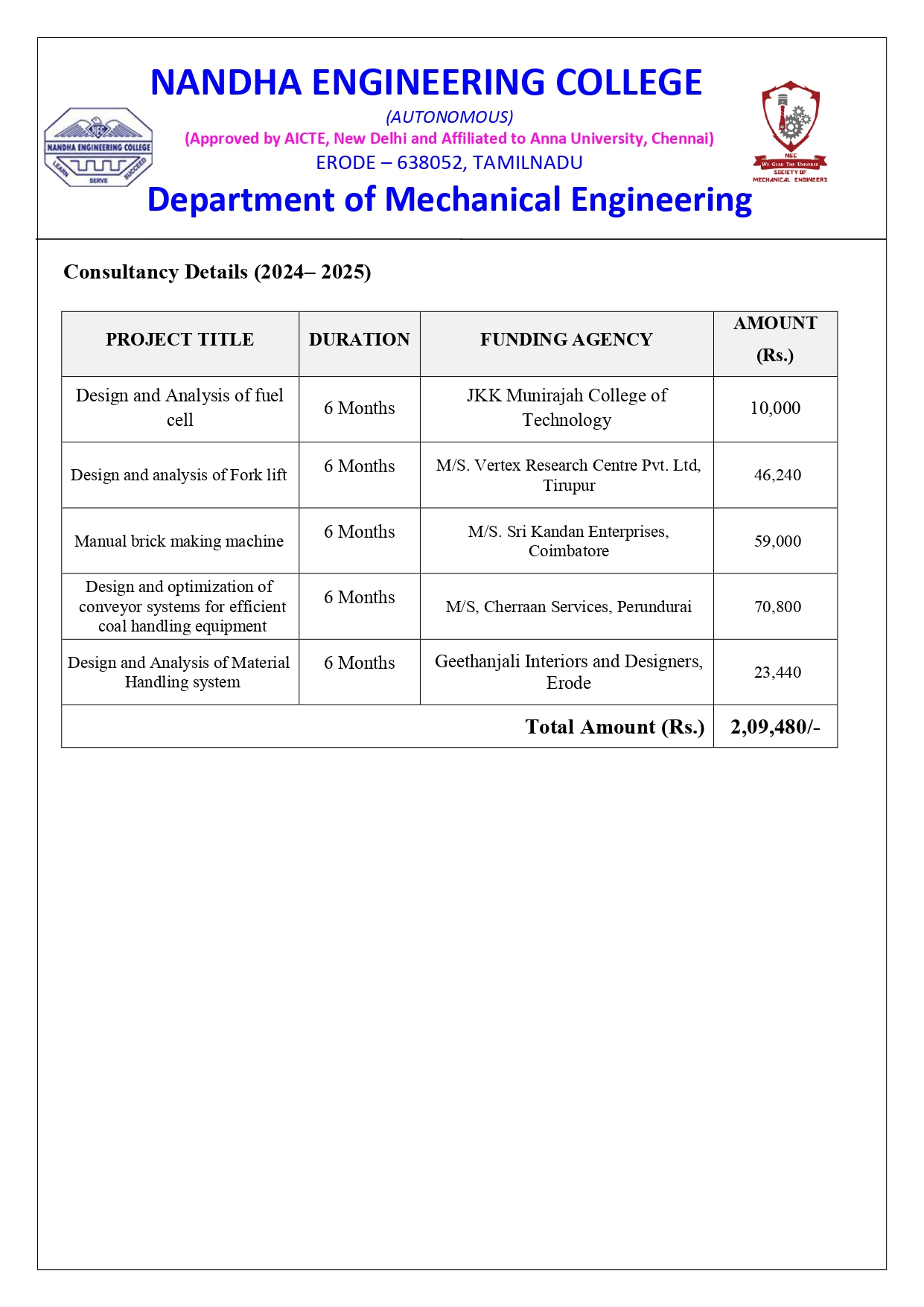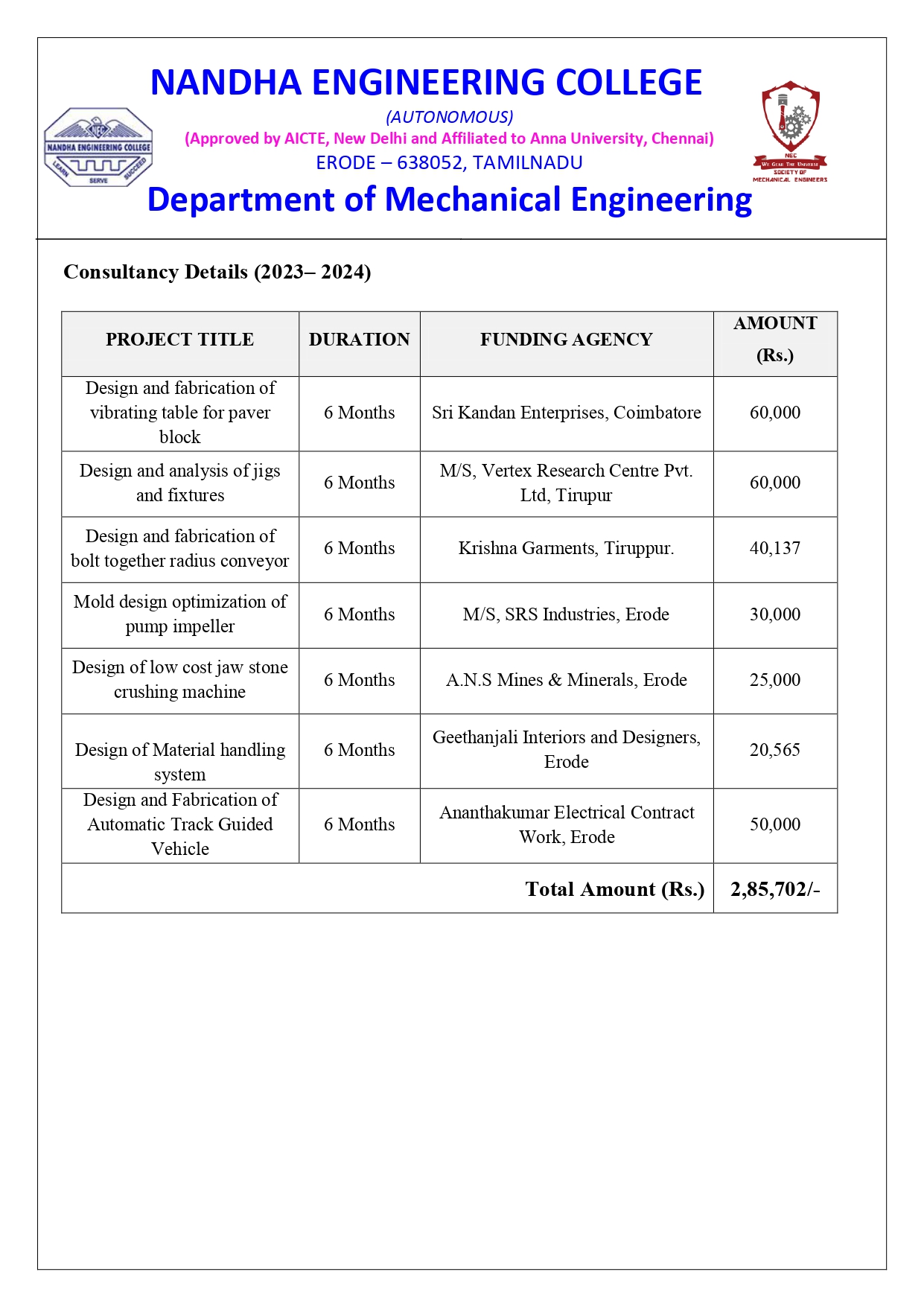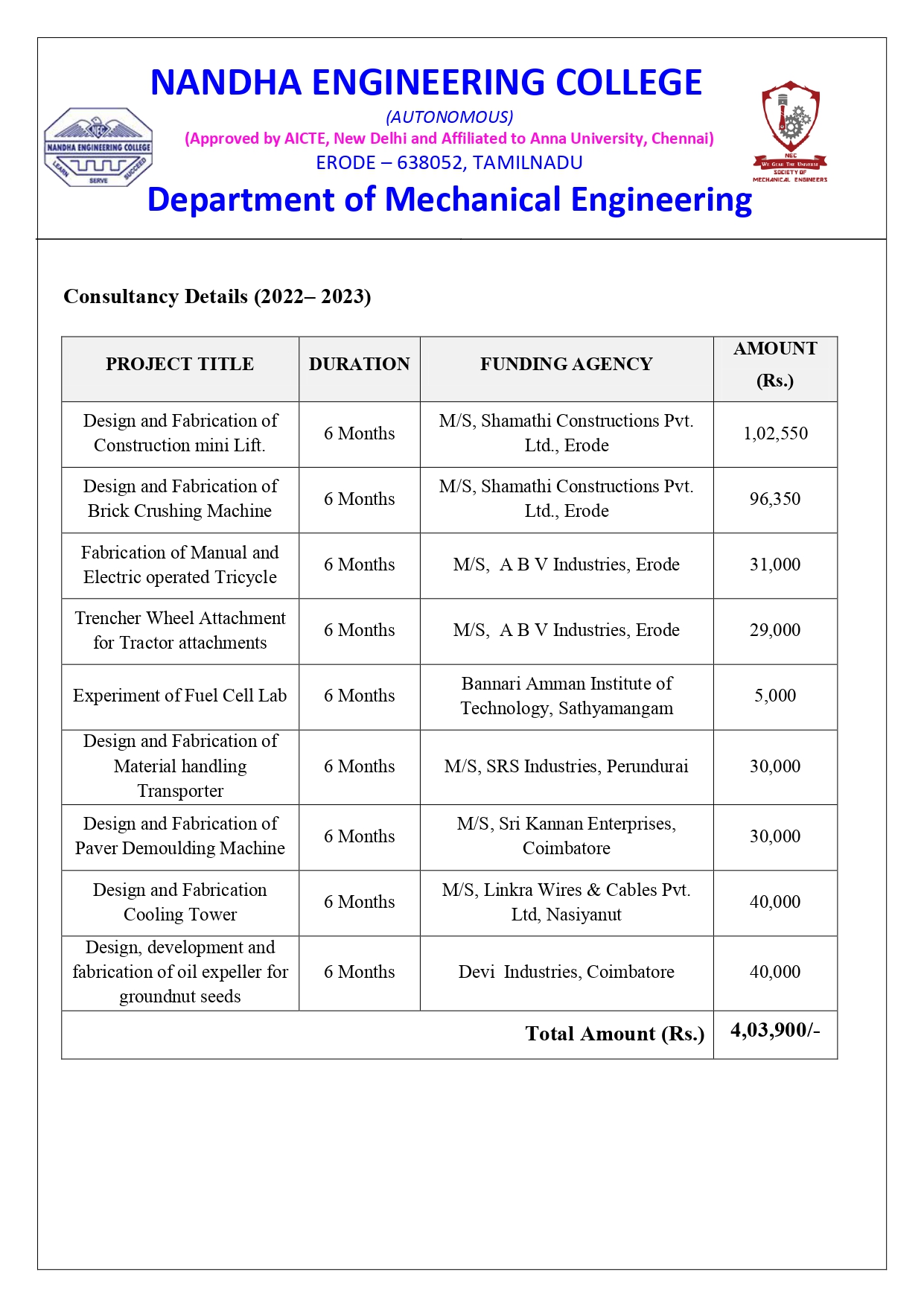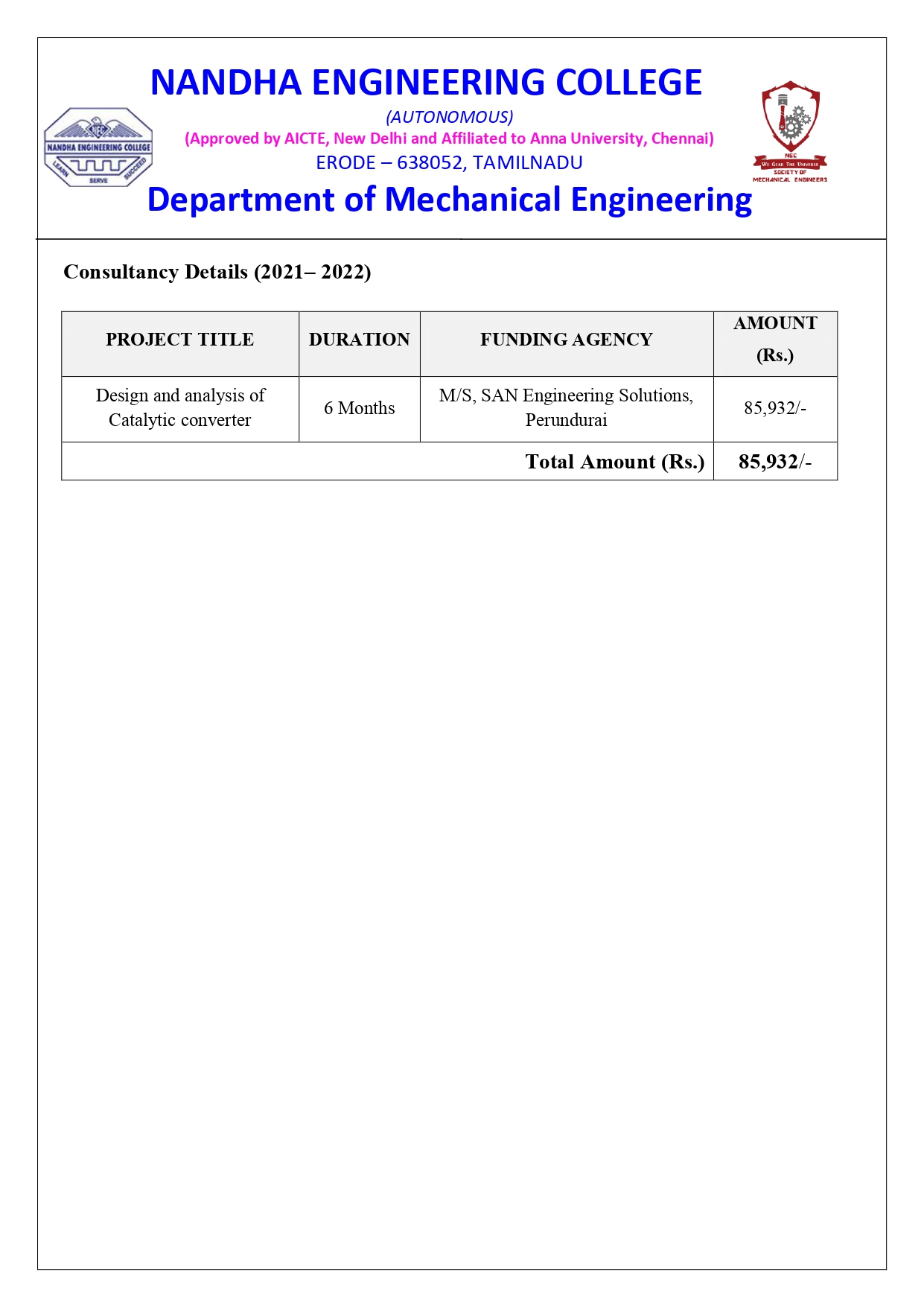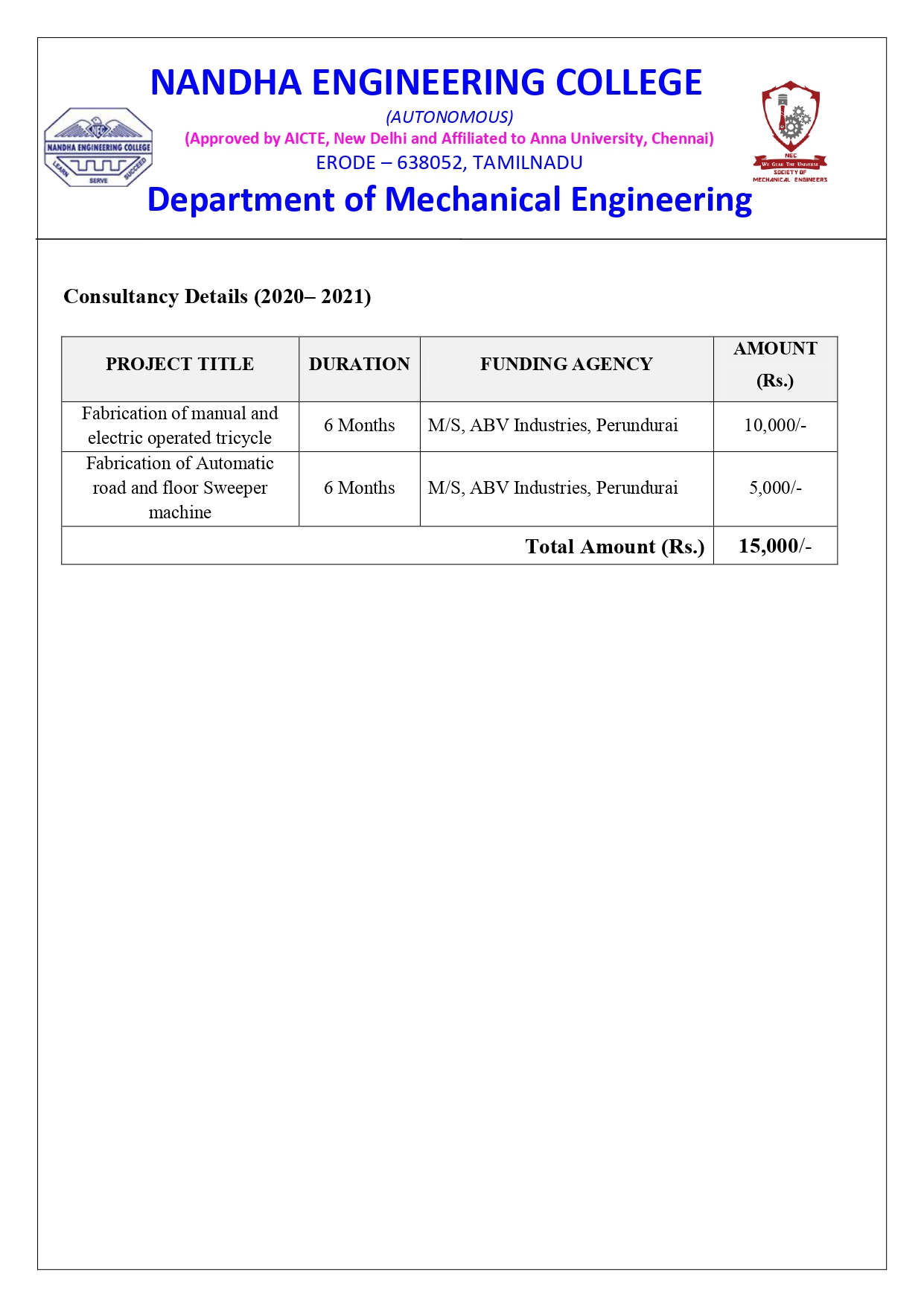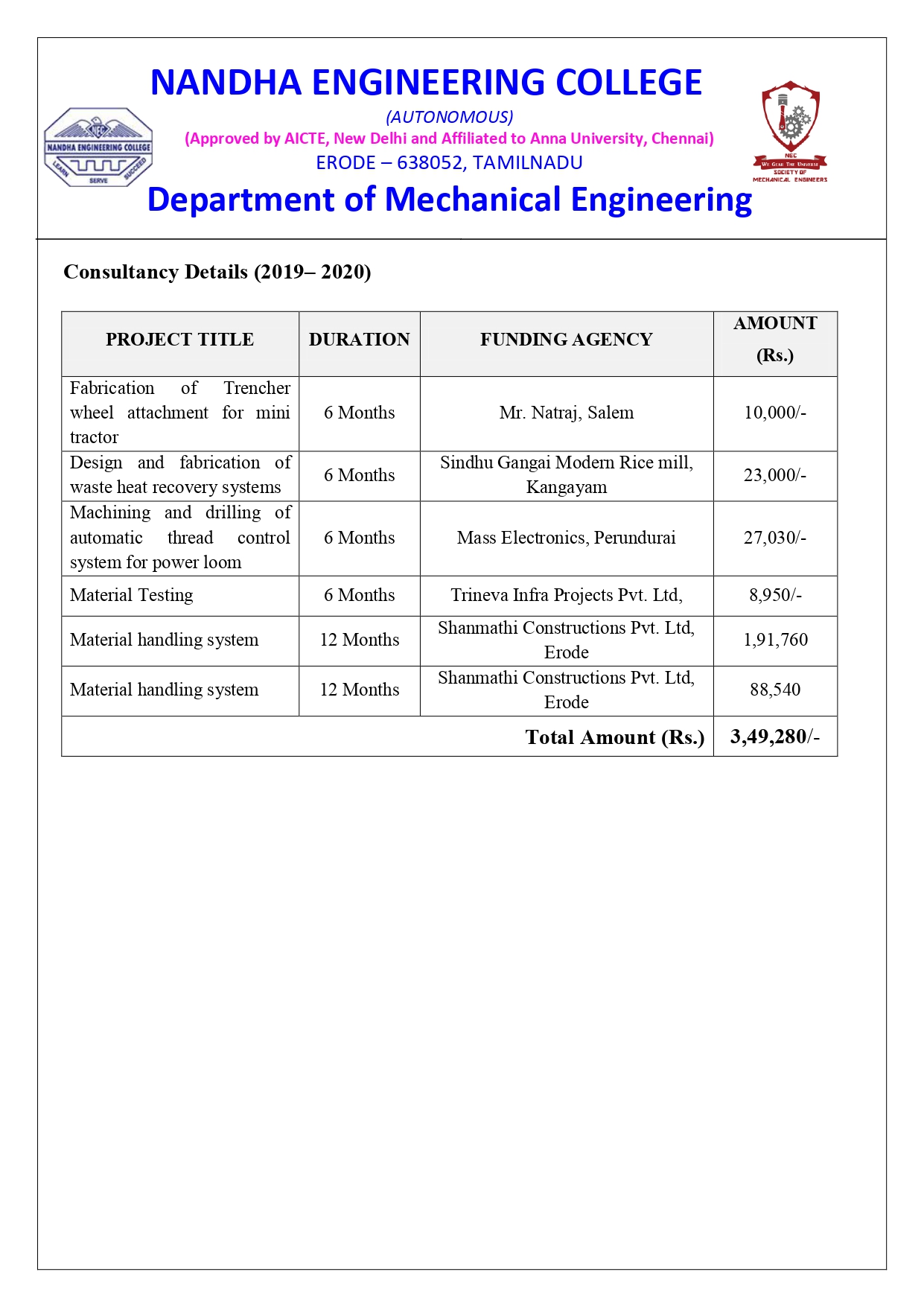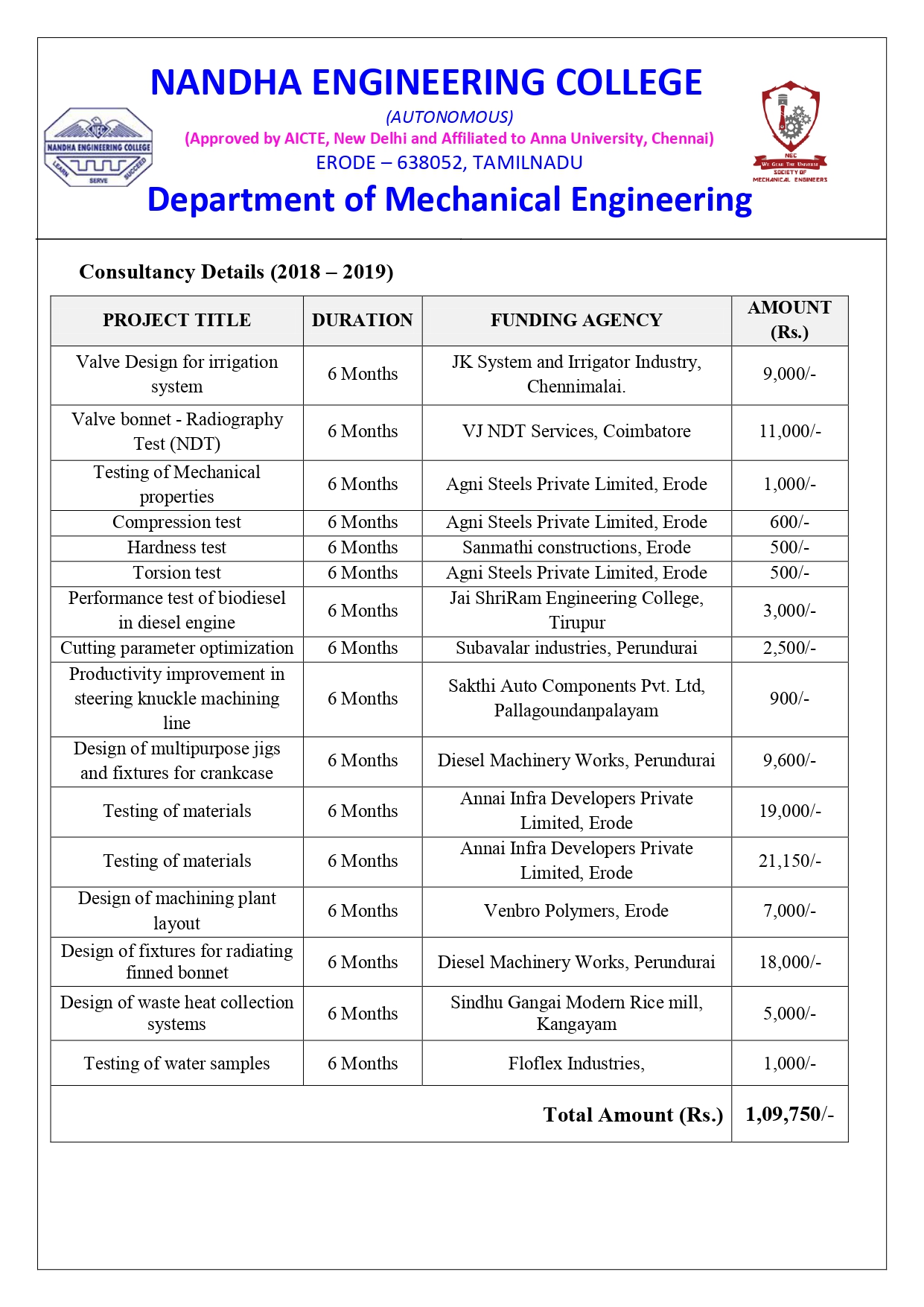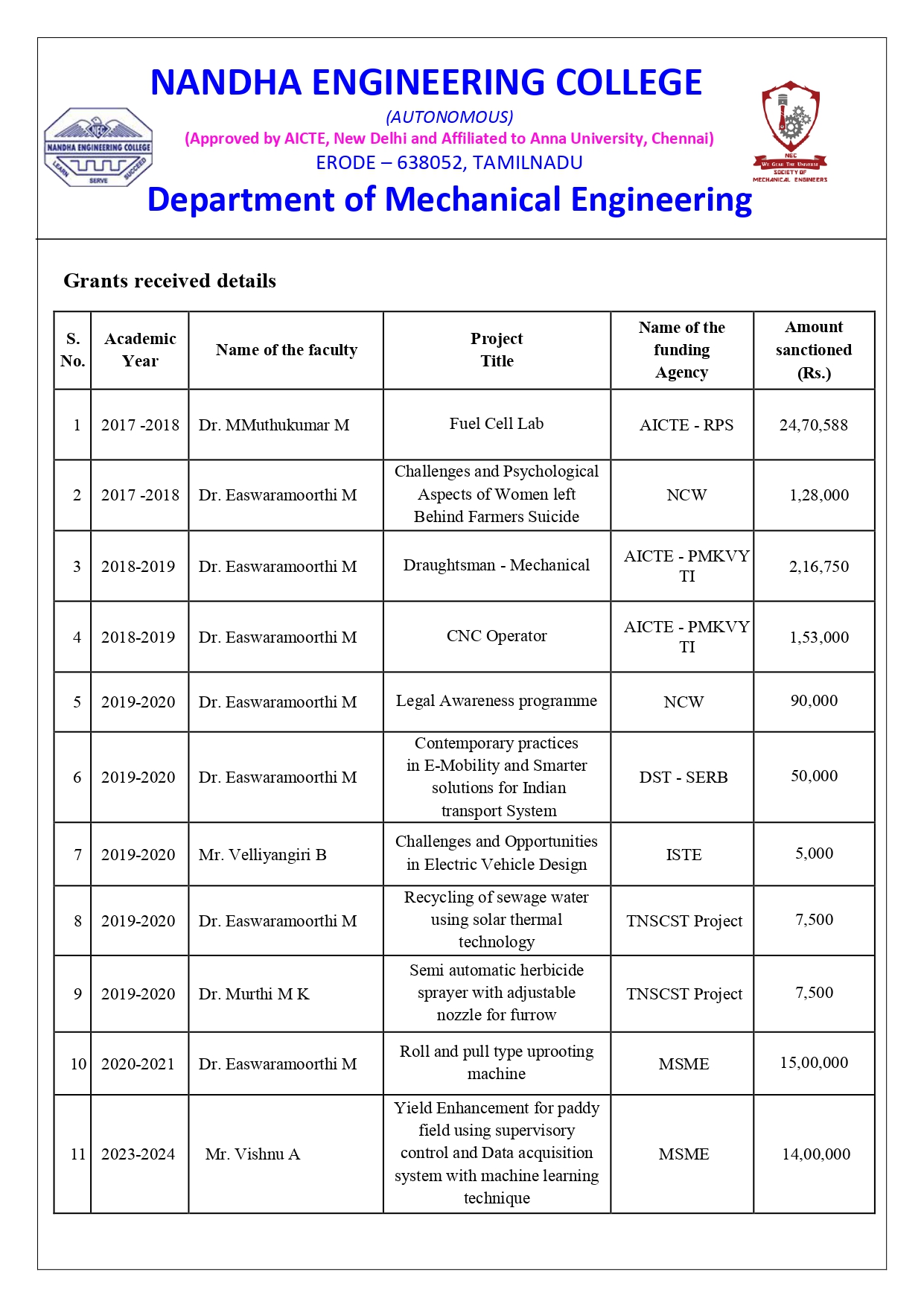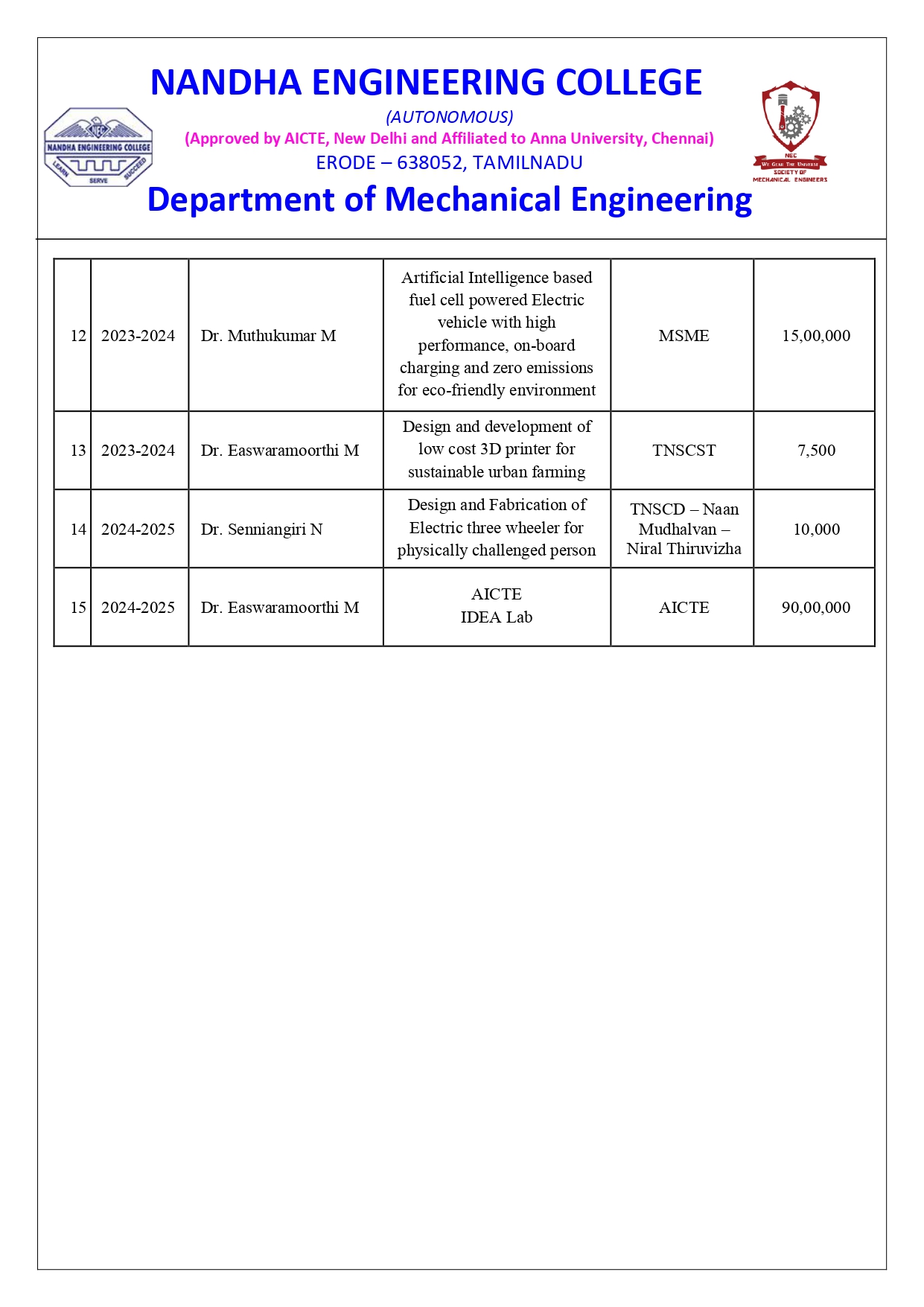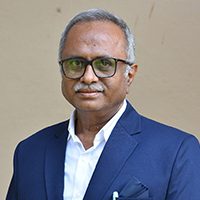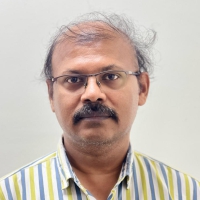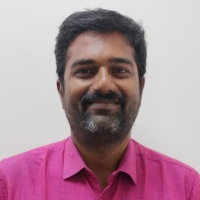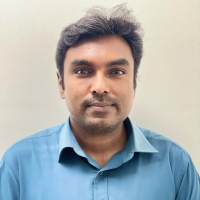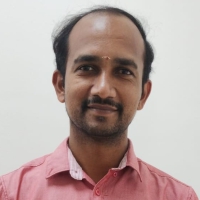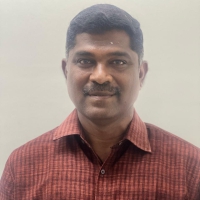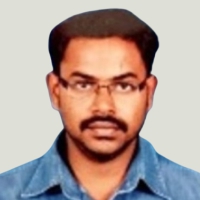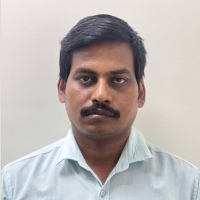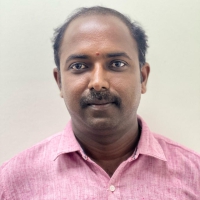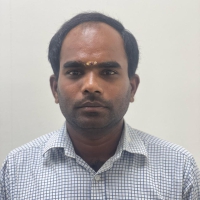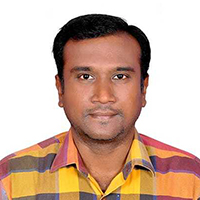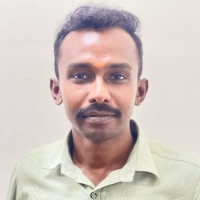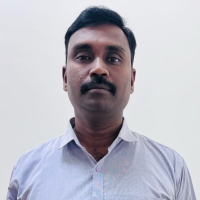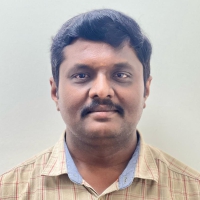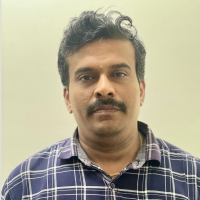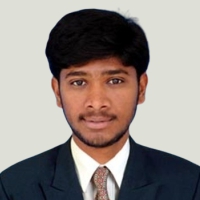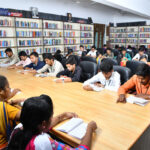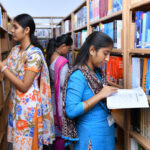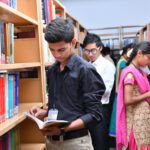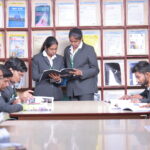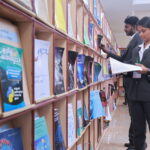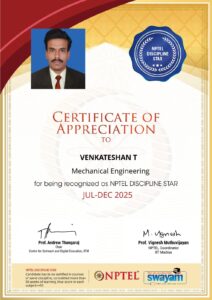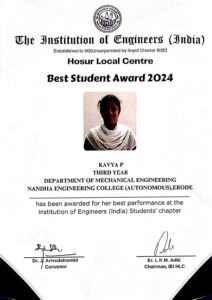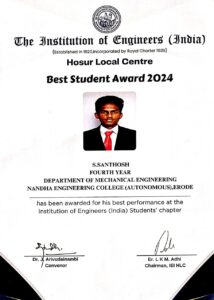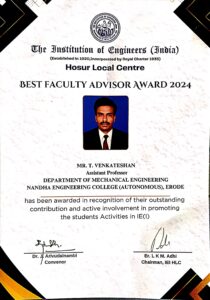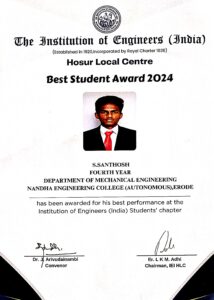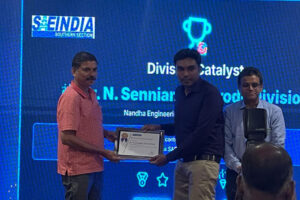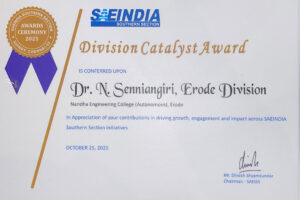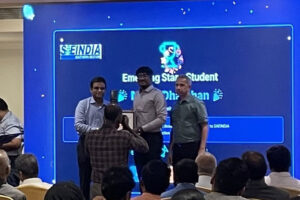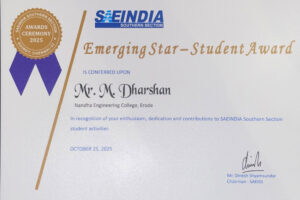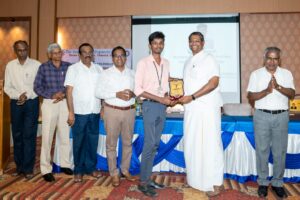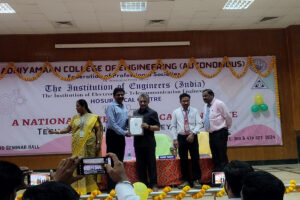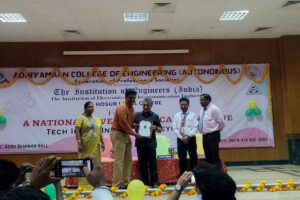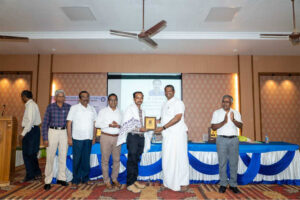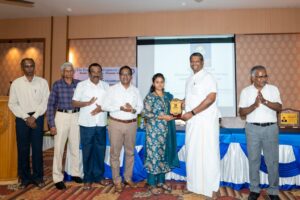
Head of the Department
Programme Offered
B.E - MECHANICAL ENGINEERING
Intake - 60
M.E - ENGINEERING DESIGN
Intake - 6
About the Department
The Department of Mechanical Engineering was established in the year 2005. At present, the department offers Graduate Programme – B.E., in Mechanical Engineering, Post Graduate Programme – M.E, in Engineering Design and Doctorate Programme – Ph.D., in Mechanical Engineering. The department has been accredited by National Board of Accreditation (NBA) in the year 2013. It is reputed for producing Engineers as Professionals, Researchers and Entrepreneurs. Many of its alumni play key roles in Industries and Institutions in India as well as abroad. The department is proud to be collaborated with well-known Industries and Institutions in the emerging fields of Mechanical Engineering.
With a right combination of theory, practical, projects (hands-on) and industrial training in the areas such as Design, Thermal, Manufacturing and Energy Engineering, this programme has well placed itself as a well-known preference for the students.

VISION
To be recognised as a centre of excellence in the field of Mechanical Engineering and to produce competent engineers with multi-disciplinary exposure to meet the changing needs of society.
MISSION
Department of Mechanical Engineering is committed
- To enrich technical knowledge and skills by imparting quality education with ethics and social responsibility.
- To empower students in the thrust areas of Mechanical, Allied Engineering, and Entrepreneurship in the continually changing global market.
- To provide a conducive learning environment for continual improvement to cater to the needs of society.
PROGRAM EDUCATIONAL OBJECTIVES (PEOs)
B.E Mechanical Engineering
PEO 1: Core Competency: A successful professional with core competency and inter-disciplinary skills to satisfy industrial needs.
PEO 2: Research, Innovation and Entrepreneurship: Capable of identifying technological requirements for society and providing innovative solutions to real-time problems.
PEO 3: Ethics, Human values and Life-long learning: Able to apply professional and ethical practices in their career through continuous learning.
B.E Mechanical Engineering
PO 1: Engineering knowledge: Apply the knowledge of mathematics, science, engineering fundamentals, and an engineering specialization to solve complex engineering problems.
PO 2: Problem analysis: Identify, formulate, review research literature, and analyze complex engineering problems, reaching substantiated conclusions using first principles of mathematics, natural sciences, and engineering sciences.
PO 3: Design / development of solutions: Design solutions for complex engineering problems and design system components or processes that meet the specified needs with appropriate consideration for public health, safety, and cultural, societal, and environmental considerations.
PO 4: Conduct investigations of complex problems: Use research-based knowledge and research methods including design of experiments, analysis and interpretation of data, and synthesis of information to provide valid conclusions.
PO 5: Modern tool usage: Create, select and apply appropriate techniques, resources, and modern engineering and IT tools to complex engineering activities with an understanding of the limitations.
PO 6: The engineer and society: Apply reasoning informed by contextual knowledge to assess societal, health, safety, legal, and cultural issues and the consequent responsibilities relevant to the professional engineering practice.
PO 7: Environment and sustainability: Understand the impact of professional engineering solutions in societal and environmental contexts and demonstrate the knowledge and need for sustainable development.
PO 8: Ethics: Apply ethical principles and commit to professional ethics, responsibilities, and norms of the engineering practice.
PO 9: Individual and team work: Function effectively as an individual and as a member or leader in diverse teams and multidisciplinary settings.
PO 10: Communication: Communicate effectively on complex engineering activities with the engineering community and society at large, including the ability to comprehend and write effective reports, design documentation, make presentations, and give and receive clear instructions.
PO 11: Project management and finance: Demonstrate knowledge and understanding of engineering and management principles and apply these to one’s own work, as a member and leader in a team, manage projects, and in multidisciplinary environments.
PO 12: Life-long learning: Recognize the need for, and have the preparation and ability to engage in independent and lifelong learning in the broadest context of technological change.
B.E Mechanical Engineering
PSO 1: Identify, formulate, and analyze the problems of Mechanical, Allied Engineering systems and product development.
PSO 2: Apply appropriate computer-aided engineering tools for modeling, simulation, analysis, and manufacturing techniques to solve engineering problems.
Supporting Staff Members
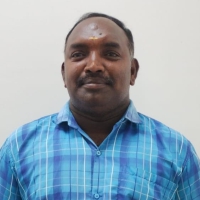
Mr.Muthusamy P
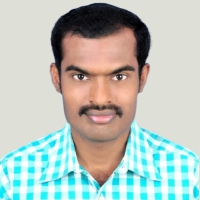
Mr.Arun G

Mr.Chandrakumar SP

Mr.Vijayan R
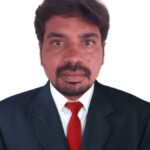
Mr.Prabhakaran K
Department Laboratory
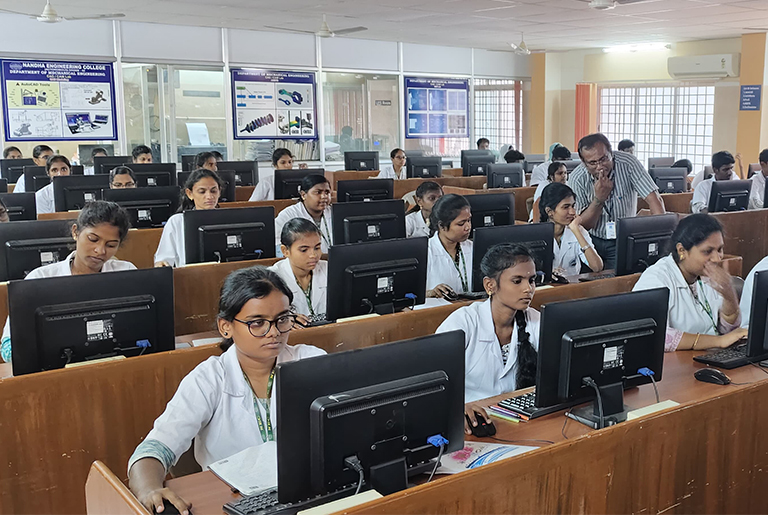
Computer-Aided Design Laboratory
A CAD (Computer-Aided Design) lab is a facility equipped with high-performance computers and specialized design software. It supports the students for creation, modification and analysis of engineering designs. The lab is furnished with software such as AutoCAD, SolidWorks and ANSYS. Students can generate detailed technical drawings and specifications required for manufacturing. The CAD lab serves as a crucial platform for academic projects, research and industry-relevant skill development.
CNC LABORATORY
The fact that the CAD/CAM Lab has the most advanced and highly sophisticated CNC Lathe & CNC is itself a proof for the interest the college has for Research and Development activities. The students are given hands on experience in part programming & operation. This enables the students to undertake challenging research oriented projects.
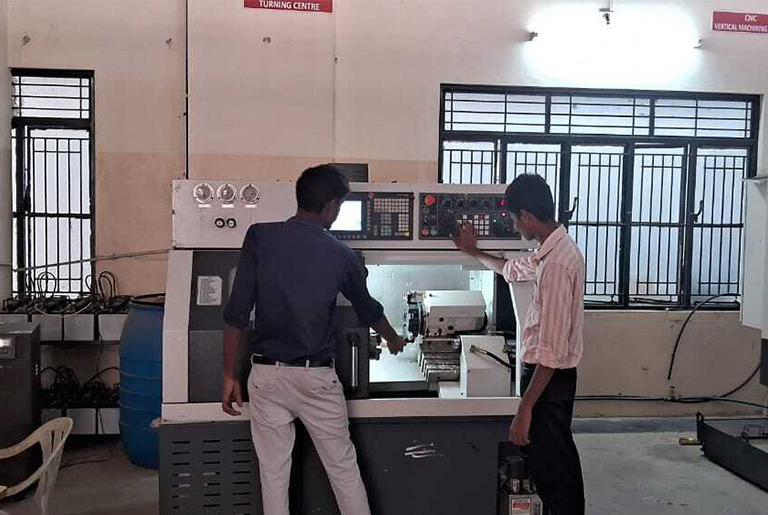
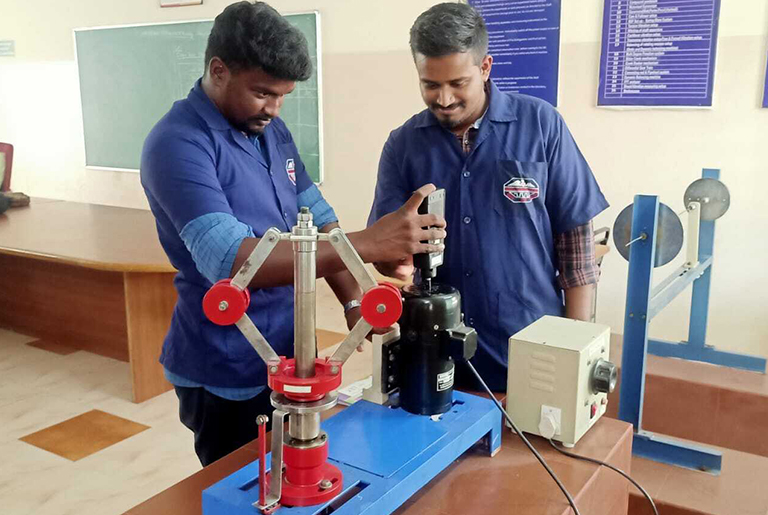
DYNAMICS OF MACHINERY LAB
The Dynamics of Machinery Laboratory facilitates the study of forces, motions, and vibrations in mechanical systems like linkages, cams, gears, and rotating masses. It is equipped with apparatus such as gyroscopes, governors, balancing machines, and vibration analyzers to analyze dynamic behavior. The lab provides practical experience in measuring, modeling, and analyzing mechanical vibrations, balancing, and dynamic force transmission. It helps students apply theoretical concepts to real-world mechanical systems.
ENGINEERING PRACTICES LABORATORY
The Engineering Practices Laboratory introduces basic manufacturing and assembly skills through hands-on training in fitting, welding, carpentry, and sheet metal work. It equips students with foundational knowledge of tools, fabrication techniques, and safety practices for engineering applications.
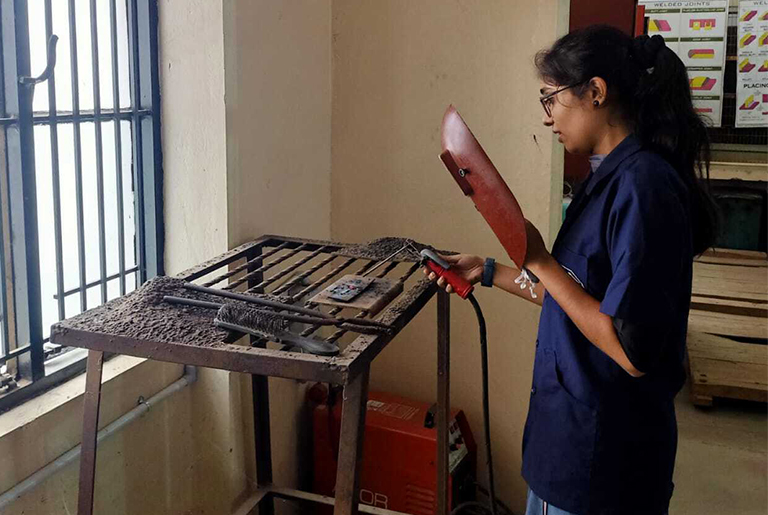
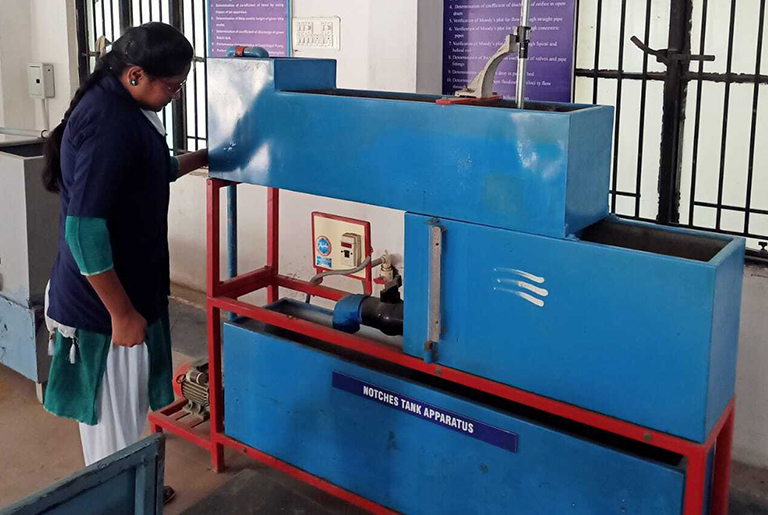
FLUID MECHANICS AND MACHINERY LABORATORY
The Fluid Mechanics and Machinery Laboratory enables the study of fluid properties, flow behavior, and hydraulic machines like pumps and turbines. It offers hands-on experience in measuring flow rates, pressure losses, and evaluating performance of fluid machinery.
HEAT AND MASS TRANSFER LABORATORY
The Heat and Mass Transfer Laboratory facilitates experiments on conduction, convection, radiation, and mass diffusion phenomena. It provides practical exposure to measuring heat transfer rates and analyzing the performance of heat exchangers and thermal systems.


MANUFACTURING TECHNOLOGY - I LABORATORY
The Manufacturing Technology – I Laboratory focuses on foundational material processing techniques such as casting, welding, forging, and metal forming. It provides hands-on training in pattern making, mould preparation, arc welding, and sheet metal fabrication. The lab helps students understand manufacturing processes, equipment handling, and process parameters.
MECHATRONICS LABORATORY
The Mechatronics Laboratory combines mechanical systems with electronics, sensors, actuators, and microcontrollers to enable automation and control. It provides practical training in PLC programming, sensor integration, and pneumatic systems. The lab prepares students to design, simulate, and deploy advanced mechatronic solutions.


METROLOGY AND MEASUREMENT LABORATORY
The Metrology and Measurement Laboratory focuses on precision measurement of dimensions, angles, and surface properties using advanced instruments. It offers hands-on experience with tools such as micrometers, vernier calipers, and surface roughness testers. The lab equips students with skills in dimensional inspection, calibration, and quality control techniques.
STRENGTH OF MATERIALS LABORATORY
The Strength of Materials (SOM) Laboratory explores the mechanical behavior of materials under various loading conditions, including tension, compression, and torsion. It provides hands-on experience with testing machines like universal testing machines, hardness testers, and impact testers. The lab helps students understand material properties, stress-strain relationships, and failure modes.
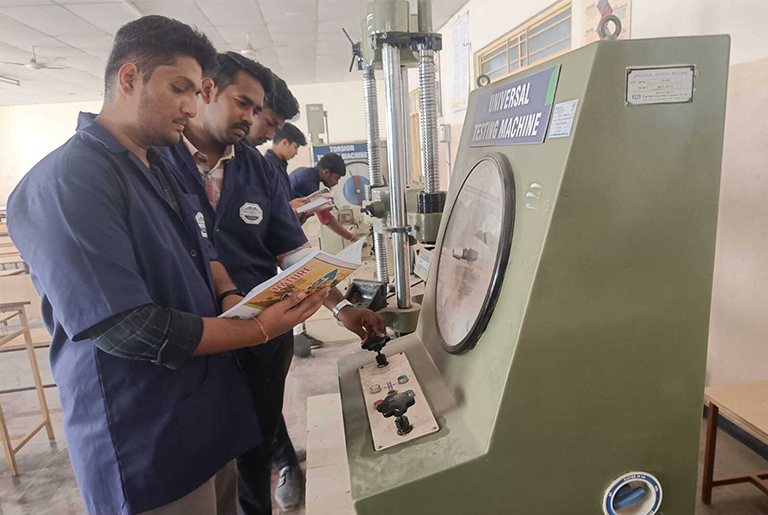

SUBTRACTIVE MANUFACTURING LABORATORY
A Subtractive Manufacturing Laboratory focuses on material removal processes such as milling, turning, drilling, and grinding to shape components with high precision. It is equipped with CNC machines, conventional machine tools, and metrology instruments to fabricate and inspect parts. The lab enables hands-on training in machining operations, tool selection, process optimization, and quality control techniques.
THERMAL ENGINEERING LABORATORY
The Thermal Engineering Laboratory focuses on the study of heat transfer, thermodynamic cycles, and energy conversion processes. It provides practical experience with equipment like heat engines, boilers, refrigeration systems, and heat exchangers. The lab helps students analyze and optimize thermal systems for efficiency and performance.




